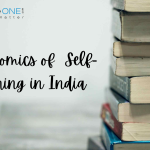Literary fiction explores the depths of human experience and emotion, weaving a rich tapestry of storytelling that goes beyond simple amusement. Literary fiction, in contrast to genre literature, is more concerned with complex character development, subtle themes, and prose that frequently verges on poetry.
This essay will examine the distinctive qualities that set literary fiction apart and the reasons it occupies a certain position in the literary canon.
Introduction to Literary Fiction
Literary fiction, sometimes known as “serious fiction,” is distinguished by its focus on narrative intricacy, thematic depth, and writing style. Literary fiction tries to challenge readers’ perspectives, arouse emotion, and encourage thought, whereas genre fiction tries to amuse and frequently follows formulaic rules.
You may also like: Top 10 Tony Robbins Books That Inspire Success and Change
Understanding the Elements of Literary Fiction
Character Development
Character development is a crucial element of literary fiction, as it allows authors to craft complex stories that explore the depths of human psychology and emotion. Literary fiction characters experience deep metamorphoses that reflect the complexity of real-life people.
Authors elicit empathy and contemplation from readers by crafting intricately nuanced personas that prompt them to consider moral quandaries and universal truths.
Whether heroes struggle with inner issues or change as a result of outside obstacles, their development propels the story along and gives it realism and resonance. Character development weaves a mirror of society and a window into the human condition into the fabric of literary fiction.
Setting
The setting is an important component in literary fiction that enhances the story’s thematic resonance and narrative depth. Literary fiction uses settings as dynamic components that mirror the characters’ internal issues and societal themes, in contrast to genre literature, where environments frequently serve as backgrounds for action-driven stories.
Literary writers take readers to highly detailed settings that act as miniature representations of the human condition through painstaking attention to detail and vivid descriptions.
Literary fiction uses environments to explore complicated emotions and concepts. Examples of these settings are the lush, metaphorical gardens of Arundhati Roy’s “The God of Small Things” and the desolate metropolitan landscapes of Cormac McCarthy’s “The Road.”
Plot Complexity
Literary fiction is known for its intricate plots, which elevate stories above simple narration. Readers are encouraged to delve into the complex interactions between characters and concepts in this genre because of the dense narratives’ levels of complexity, symbolism, and nuance.
Ambiguity and nuance are key components of literary fiction, as they force readers to interpret underlying meanings and ideas. In order to create a rich tapestry of storytelling, authors frequently use nonlinear storylines, various perspectives, and sophisticated frameworks.
This intricacy encourages close reading and sparks debates and interpretations long after the last page is flipped. Essentially, literary fiction’s intricate plots provide as a doorway for in-depth investigation and comprehension.”
Theme Exploration
The investigation of themes emerges as a fundamental component in comprehending the aspects of literary fiction. Literary fiction analyses difficult subjects with subtlety and depth, going beyond simple storytelling to explore the human condition.
Literary fiction explores issues like identity, love, loss, and the search for meaning via nuanced character development and multi-layered narrative arcs. Writers carefully tailor their words to elicit reflection and strike a deep chord with readers.
Readers can explore the complexities of the human condition and go on a journey of self-discovery and empathy by immersing themselves in the rich tapestry of subjects found in literary fiction.
Yoy may also like: Top 10 Leadership Books in Literature to Inspire Your Journey
The Role of Language and Style
Language and style are the fundamental components of literary fiction that set it apart from other genres. Literary fiction is distinguished by its deep and evocative prose, which goes beyond simple narrative to explore intricate subjects and the depths of the human experience.
The ability to articulate subtleties in language enables writers to create vivid imagery and explore the complexities of relationships and emotions. The writing style frequently highlights nuance and complexity, encouraging readers to consider underlying ideas and meanings.
Essentially, the purpose of language and style in literary fiction is to elicit a deep and enduring psychological impact on the reader rather than just to tell a story.
Importance of Symbolism and Metaphor
Symbolism and metaphor are essential techniques in literary fiction, adding levels of meaning and complexity to stories. Symbolism invites readers to look deeper by expressing abstract ideas and themes through the usage of things, activities, or characters.
Conversely, metaphors provide readers with vivid analogies that help them understand difficult feelings and ideas by connecting them to well-known experiences.
These components take literary fiction beyond simple narrative and enable readers to reflect and empathize with the characters. They define the timeless appeal of literary fiction by illuminating universal truths, igniting discussions, and continuing long after the last page is turned.
Emotional Depth and Psychological Realism
Literary fiction’s unmatched ability to evoke strong emotions and realistic psychological details is at its core. Literary fiction explores the nuances of human emotions and motivations, delving into the complicated inner workings of the human mind and soul, in contrast to other genres.
Literary fiction fosters a deep connection between readers and characters by means of intricate character development and nuanced storytelling, enabling them to contemplate existential issues and universal truths. This genre encourages reflection and empathy above all else, pushing readers to face the complexity of the human condition.
Literary fiction’s fundamental quality is its capacity to provide deep understandings of the human condition by delving into psychological realism and emotional depth.
Contrast with Genre Fiction
It’s important to compare literary fiction with genre fiction while examining its components. Literary fiction places greater emphasis on complex prose, thematic inquiry, and character depth than genres like mystery, romance, or science fiction, which tend to have more well defined bounds.
Literary fiction frequently explores deep human experiences, deftly and thoughtfully addressing heavy subjects like identity, existentialism, and social criticism. Literary fiction asks readers to engage intimately with the human condition, challenging perspectives and prompting thinking long after the book is closed, while genre literature amuses with escapism and plot-driven storytelling.
Examples of Literary Fiction
There are a plethora of captivating examples of literary fiction, which is characterised by its complex style and emphasis on themes and character development. Novels like “Breaking the Shells” by Akosottu and “Soul Man” by Tarun Kumar.
“Lovers of India” by Ashmita Kar addresses the moral conundrums raised by identification and science. These examples show how literary fiction is a genre that both tests and deepens the reader’s experience since it goes beyond simple storytelling and immerses readers in complex worlds where empathy and introspection bloom.
Impact and Significance of Literary Fiction
Literary fiction is a shining example of sophisticated narrative that explores the complexities of human experience and emotion. Its power comes from its capacity to go beyond simple amusement, providing readers with a prism through which to see both society and their own lives.
Literary fiction encourages reflection and empathy via the development of difficult subjects, sophisticated prose, and rich character development. Its importance goes beyond simple entertainment; it promotes critical thinking and cross-cultural communication.
Literary fiction develops comprehension and empathy by engrossing readers in both familiar and unfamiliar worlds. This, in turn, shapes viewpoints and promotes a more compassionate society.
Common Misconceptions about Literary Fiction
It’s important to expose the components of literary fiction in order to debunk some myths about this genre. Literary fiction isn’t limited to complex language or difficult subjects, despite what the general public believes. Rather, it covers a wide range of topics and storytelling techniques, frequently concentrating on the subtleties of human feelings and experiences.
Literary fiction offers deep insights into the human condition and acts as a mirror to society, despite the opinions of some who consider it to be arrogant or elitist.
It stands out from other genres with its focus on character development, thematic complexity, and sophisticated language, offering readers who are prepared to go beyond the obvious a satisfying and fulfilling read.
Challenges of Writing Literary Fiction
Writing literary fiction differs from other genres in that it poses a multitude of obstacles. A major barrier is the requirement for complex character development. Literary fiction writers must go deeply into their own minds to produce intricate and genuine portraits of characters, who are frequently used as vehicles for examining difficult issues and concepts.
It can often be difficult to strike a balance between captivating story and lyrical prose. Literary fiction authors have to craft sentences with great care so that they both advance the plot and strike a chord with readers.
Moreover, developing narratives that encourage reflection and interpretation requires mastering ambiguity and embracing complexity. These difficulties highlight the distinctive qualities of literary fiction and distinguish it as a form that calls for both talent and creativity.
Tips for Aspiring Literary Fiction Writers
Writing literary fiction that engages readers demands a sophisticated technique that goes beyond simple narration. In order to compose literary fiction, aspiring authors should immerse themselves in complex language and explore the depths of human experience.
Put a lot of effort into developing your characters so that they can change for real as the story progresses. Invite readers to reflect on the complexities of life by embracing ambiguity and delving into intricate issues.
Give your wording careful thought, creating clear and intriguing text. Aspiring authors of literary fiction can differentiate their stories from others in the genre by giving priority to these components and producing works that have a profound emotional impact on readers.
Conclusion
To sum up, reading literary fiction is a deep and fulfilling experience that goes beyond simple amusement. Exploring the intricacies of the human experience pushes us to think critically, feel profoundly, and participate meaningfully in the world.
















